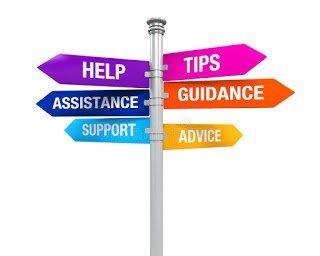Table of Contents
ToggleThe Five Rules Of Recovery
Understanding the process of relapse is a key component in establishing a path to long-term recovery. Contrary to popular belief, relapse isn’t a spur-of-the-moment event and typically occurs as a three-part process: emotional, mental, and physical.
However, there are five rules to recovery that can be applied to avoid relapse. They are a relapse prevention principle coined by Dr Steven Melemis who specializes in addictions and mood disorders and wrote the book I Want To Change My Life. Not only do these rules help us focus on what is important, but they are also indicators of relapse. If a relapse occurs, it is often because one of these rules has been broken.

Rule 1: Change Your Life
Recovery means more than simply stopping substances. It’s about creating a life in which you no longer want to use. You may not need to change everything in your life, but addressing the negative thought patterns and behaviors that caused your addiction is a good place to start. There are also a few other common things that people need to change in recovery, such as avoiding high-risk people and places.
Rule 2: Be Completely Honest
Let’s be honest, an addiction requires lying. To keep on the path to recovery, you must be honest, not only with those around you but also with yourself. When you’re completely honest you don’t give your addiction room to hide. For many in recovery, dishonesty was a way of life during active addiction. Melemis considers dishonesty as a sign of emotional relapse – an old pattern that’s a sure way to result in using again.
Rule 3: Ask For Help
Recovery involves learning to reach out and ask for help. Many attempt sobriety on their own, but the truth is that if they were able to stop without a support network, they would have stopped long ago. It is a good idea to develop a recovery circle. Close family members and friends, counsellors and recovery groups will help keep you accountable and offer support when you need it.
Rule 4: Practice Self-Care
The process of recovery means undergoing a profound transformational process – one that centers on creating new coping mechanisms that are kind to our minds and bodies. Recovery doesn’t mean denying yourself ways to escape, relax, or reward yourself. It just means finding better ways to do those things.
Rule 5: Don’t Bend The Rules
Trying to bend the rules or negotiate our recovery is a dangerous game, and an indication of the first stage of relapse – emotional relapse. Thoughts like “just one last time” or “my drug of choice was ….. So I can use …… without a problem” are a surefire way to make your recovery more difficult than it has to be.
Following these five simple rules will ensure that you stay true on the path to long-term recovery, and are able to build a solid foundation for a substance-free life.
Recovery852 assists individuals and families struggling with addiction. We specialize in but are not limited to tailor-made treatment programs, relapse prevention, recovery wellness retreats, aftercare programs and recovery coaching. If you or someone you know is on the path to recovery, contact us today.
- Different Types of Addiction
- Support Network In Recovery From Addiction
- Effective Treatment for Addictive Behaviours
- Cognitive Behavioural Therapy For Addiction
- Setting Realistic And Reachable Wellness Goals In Recovery
- How Addiction Affects Families
- Sober Curious: A Movement For Change
- The Five Rules Of Recovery
- What Is Acceptance and Commitment Therapy?
- Mental Health 102: Understanding Depression
- Unpacking Wine Mom Culture
- The Dangers of Addiction Replacement
- Nurtured By Nature: Nature In Addiction Recovery
- The 12 Steps For Atheists
- A Deeper Look Into Dual Diagnosis
- Financial Wellness in Addiction Recovery
- How Does Stress Affect Addiction?
- Mental Health 101: Understanding Anxiety Disorders
- Talking About Marijuana Use Disorder
- Yoga Practices in Addiction Recovery